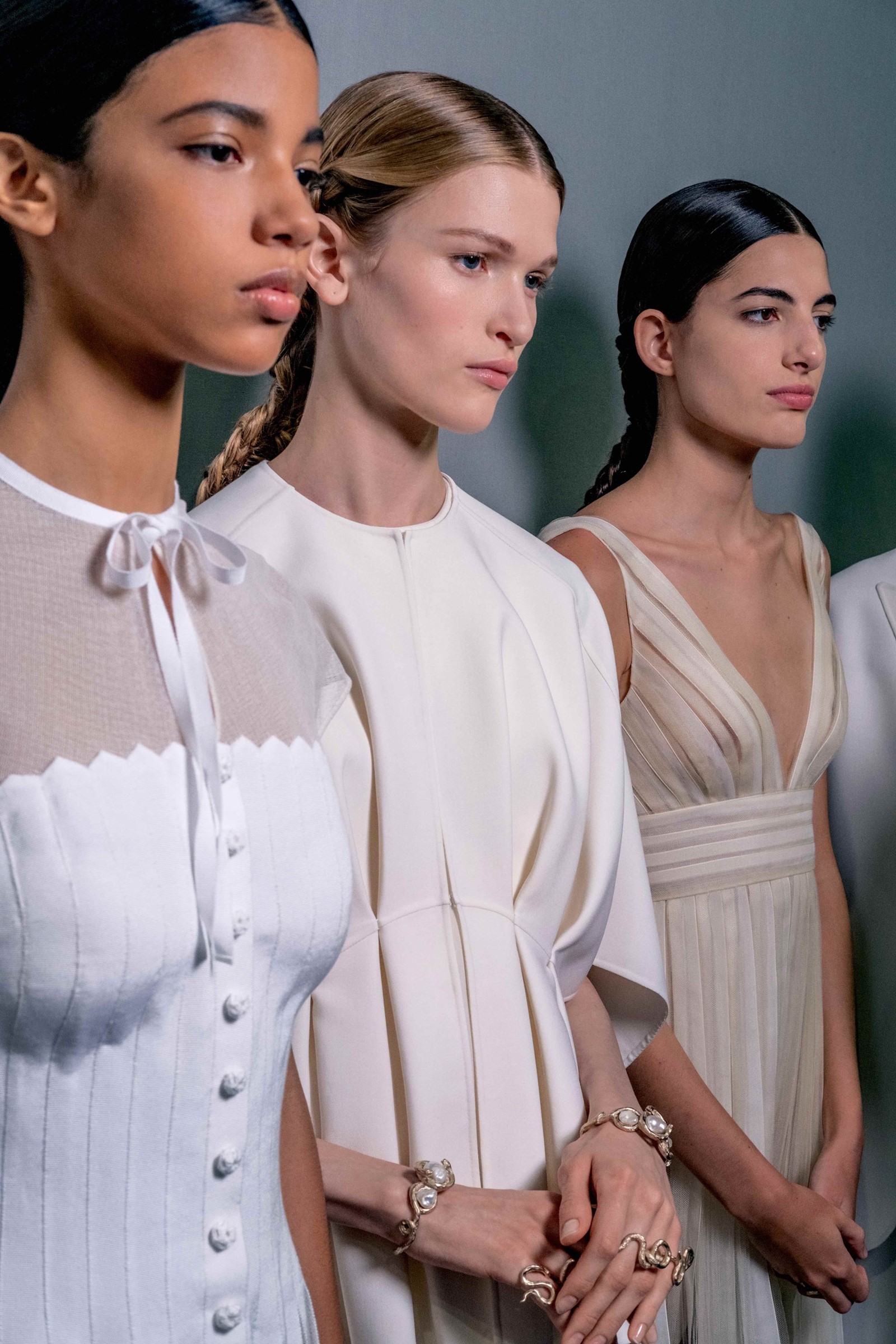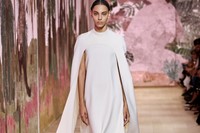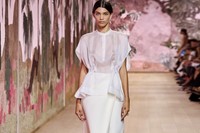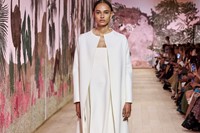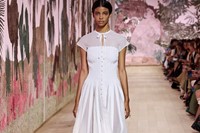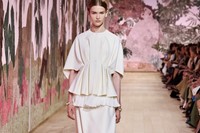Let’s be real: if you’re one of the 0.0001 percenters who buy haute couture, you want to wind up looking like a goddess. Which was, as it happens, the idea behind Maria Grazia Chiuri’s Autumn/Winter 2023 Dior collection, with its white, silver and gilded palette, its vertical lines, its gestures to classical antiquity and fluted columns. In flat shoes, her models slowly walked, like Greco-Roman deities come to life.
The trigger for this, Chiuri said, was the work of artist Marta Roberti, which examines and recreates the iconography of ancient goddesses – “divine mothers” – and their association with animals. The goddesses aren’t limited to the known Olympians – they span the recurrence of similar figures across different cultures and civilisations, including those of Mediterranean, Asia and Central America – from Hinduism to Aztec goddesses. Roberti collaborated with Chiuri and Dior to create the environment for the show, punctuating the space at the Musée Rodin not with the perhaps-expected statues, but rather hand-embroidered panels, that served less as backdrops to the clothes than as windows into these ancient worlds, women and stories that inspired them.
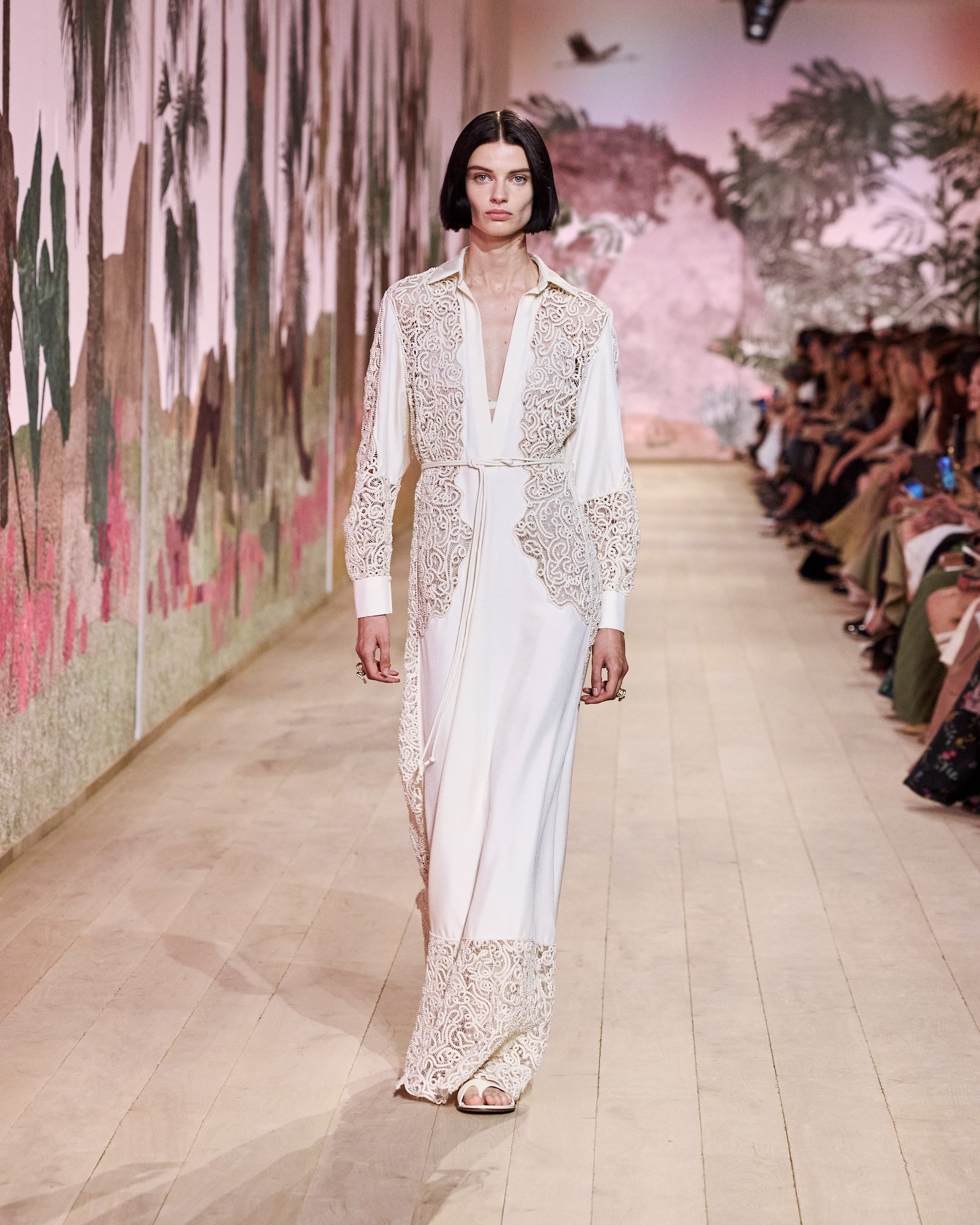
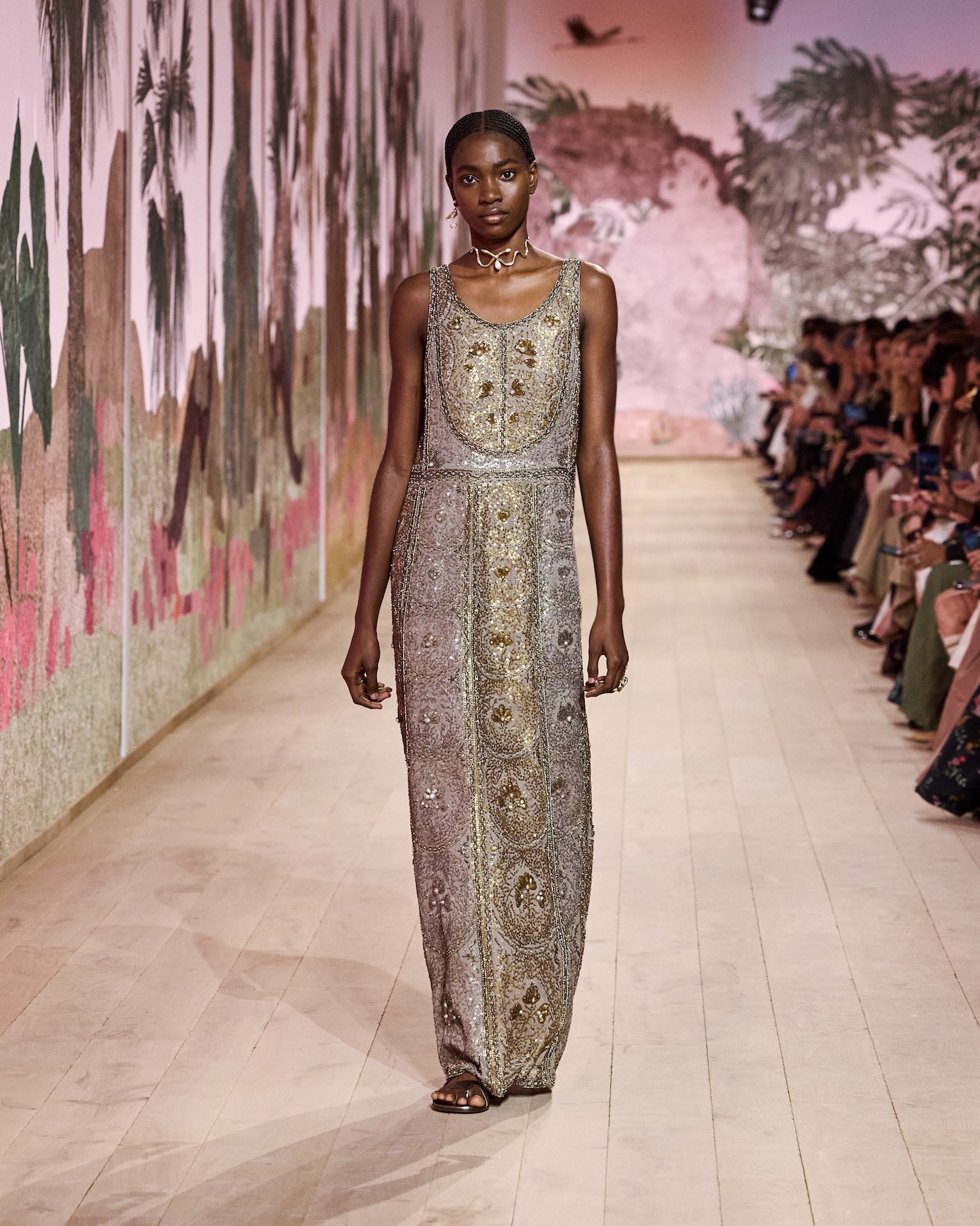
The notion of the goddess is woven into the very fabric of the maison itself, too. Christian Dior himself always wanted to transform women into heightened versions of themselves, to ‘save’ them from nature, as he once famously stated. For his own Autumn/Winter 1949 collection, he created dresses christened ‘Junon’ and ‘Venus’ that framed women with cascading waves of sequin-embellished silk. The latter was the style recreated by the house for Natalie Portman to wear at the Cannes Film Festival in May – so maybe that sparked Chiuri to consider the classics within the cannon of Dior. Moreover, her predecessor Gianfranco Ferré created pleated georgette gowns inspired by classical Greek columns back in 1992, and Chirui herself presented her Dior Cruise 2022 collection at the Panathenaic Stadium in Athens. So there’s a lineage here.
What was striking in this latest iteration was how effortlessly contemporary these ancient ideas could look, pleats cascading softly, sometimes outlined with pearls – ancient symbols of purity and femininity, which myth had were created from drops of water on the body of the goddess Venus, or tears of joy shed by her Greek counterpart Aphrodite. The line is elongated, the silhouette pure, with a focus on garments cut to drape and fold around the body, rather than tailored rigidly to fit. The tunic, the peplum, the cape, the stole – although, of course, the sculptural silhouette of la Tailleur Bar, the female form divine, made an appearance.
We don’t really have the kind of rituals the ancient Greeks and Romans used to indulge in anymore: but perhaps the fashion show, with its formalised parade and inherent pageantry, takes on some of their characteristics. Certainly, they’re about imbuing objects with magical properties – elegance, chic, desirability. Here, Chiuri’s message was about the pure power of feminine beauty, made not only material, but real and really applicable to the real-life of women today.
